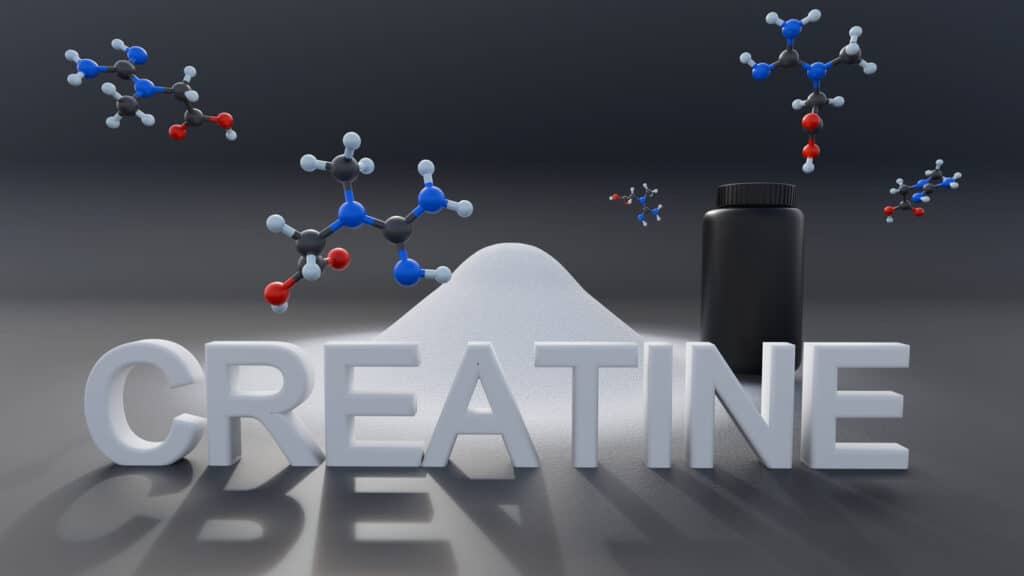What Is Creatine?
Creatine is a natural compound found in your muscles. It helps produce energy during exercise and supports muscle growth, strength, and recovery. Your body makes some creatine on its own, and you also get it from foods like meat and fish. Many people take creatine supplements to enhance performance or muscle strength.
Why Does Creatinine Go Up When Taking Creatine?
When you take creatine, your total body stores increase. A small portion naturally breaks down into creatinine, which shows up in blood tests. So if your creatinine level goes up a little, it often doesn’t mean your kidneys are being harmed — it may simply reflect more creatine being used and converted.
This is important because creatinine is a marker, not a cause of kidney problems. It can look elevated even when kidney function is perfectly normal.
When It’s Normal vs. When to Check Further
| Creatinine Change | What It Usually Means | What To Do |
| Small increase (0.1–0.3 mg/dL) | Normal response to creatine | Stay well hydrated |
| Moderate increase (0.4–0.5 mg/dL) | Possibly dehydration or too much creatine | Drink more fluids, recheck labs |
| Large or ongoing increase (>1.5 mg/dL or keeps rising) | Could indicate real kidney stress | Stop creatine, contact your doctor |
Hydration Guidelines
Creatine pulls water into your muscle cells, which can slightly reduce circulating fluid volume. To support your kidneys and muscle function:
- Aim for 3–4 liters (100–130 oz) of water per day
- Drink extra water on workout days or in hot weather
- Your urine should be clear to light yellow — that’s a simple hydration check
If you’re on a fluid restriction or have kidney or heart conditions, talk to your physician before increasing fluid intake.
If Creatinine Continues to Rise
If your creatinine keeps climbing despite hydration and proper dosing:
- Stop taking creatine for 1–2 weeks.
- Have your doctor repeat kidney function tests (creatinine, BUN, cystatin C, and urinalysis).
- Avoid other substances that can stress your kidneys, like NSAIDs, contrast dye, or excessive protein powders.
- If the elevation persists, your doctor may refer you to a nephrologist for further evaluation.
Recommended Use
- Type: Micronized creatine monohydrate
- Dose: 3–5 grams per day
- Timing: Any time of day, with water or a small meal
- Consistency: Daily use is more effective than occasional use
- Safety: Long-term studies show it’s generally safe when used properly with adequate hydration
Key Takeaways
- A mild creatinine increase from creatine is common and usually harmless.
- Good hydration protects your kidneys and enhances results.
- If levels rise significantly, pause and recheck with your doctor.
- Always use high-quality, pure creatine monohydrate — not blends or unverified products.
Live Beyond Well
Optimal performance and longevity start with understanding your body’s biology. When used correctly, creatine can support energy, strength, and cellular health it’s about using it wisely, tracking your response, and maintaining balance.










